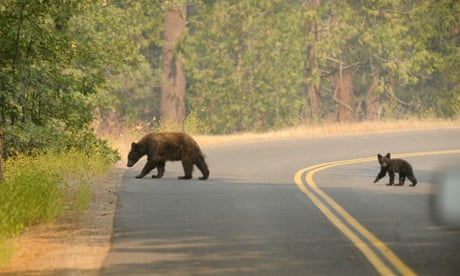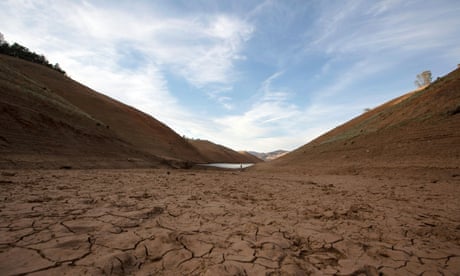Extract from The Guardian
Temperatures soared across the region as Portland hit 108F and Seattle broke 100F for only the fourth time since records began.

A man in Portland cools off on the Willamette river as temperatures soared to an all-time high for the area.
First published on Sun 27 Jun 2021 11.46 AEST
Government officials, wildlife managers and utility workers across the Pacific north-west were trying to keep people and animals safe as a historic heat wave scorched the region on Saturday.
Portland, Oregon, had its hottest day ever recorded – reaching 108F (42.2C) on Saturday afternoon, according to the National Weather Service. The previous record for Oregon’s largest city was 107F (41.7C), a mark hit in 1965 and 1981.
Seattle reached 101F (38.3C) by mid-afternoon Saturday, making it the hottest June day on record and only the fourth time in recorded history the usually temperate city had topped 100 degrees, according to the National Weather Service.
Other cities and towns from eastern Washington state to Portland to southern Oregon were also expected to break records, with temperatures in many areas expected to reach 30F above normal.
It is a dangerous forecast for a region accustomed to mild weather, and where many people don’t have air conditioning.

Three women participate in the Capitol Hill Pride march in soaring heat in Seattle on Saturday. Photograph: Karen Ducey/Reuters
The hot weather had berry farmers scrambling to pick crops before they rot on the vine and fisheries managers working to keep endangered sockeye salmon safe from too-warm river water.
Officials in Multnomah county, Oregon, which encompasses Portland, warned that highs well above 100F could cause public transportation delays, strain emergency medical services and cause power outages.
On a short video
posted online, the county’s health officer, Dr Jennifer Vines, urged
residents to go to a cooling center if they do not have air
conditioning, warning that the area is in for “life-threatening” heat.
Officials were asking for volunteers to help staff the centers.
Boys cool off at a splash park at the Georgetown Playfield in Seattle on 26 June. Photograph: Karen Ducey/Reuters
In Portland, forecasters said the thermometer could soar to 108F (42 C) by Sunday, breaking an all-time record of 107 F (42 C) set in 1981. Unusually hot weather was expected to extend into next week for much of the region.
Seattle had only hit 100F three times in recorded history before Saturday, the National Weather Service said, and there was a chance it could eclipse the record of 103 F (39 C) on Monday.
“If you’re keeping a written list of the records that will fall, you might need a few pages by early next week,” NWS Seattle tweeted.
James Bryant, a Seattle resident, picked up an air conditioner in anticipation of the extreme heat.
“My house is already hot, and so with the added heat over the next few days, I’ve got kids I got to make sure they don’t get too hot as well,” Bryant said. “It seems to be a trend ... So I’m not sure what’s driving it, but it’s not fun that’s for sure.”
In Oregon, governor Kate Brown suspended capacity limits for movie theaters and shopping malls – places with air-conditioning – as well as swimming pools ahead of a statewide reopening Wednesday.
The sweltering temperatures expected on the final weekend of the US Olympic Track and Field trials in Eugene, Oregon, also prompted USA Track and Field to reschedule several weekend events to times earlier in the day to avoid the peak heat.
The extended “heat dome” over
the Pacific north-west was a taste of the future as climate change
reshapes weather patterns worldwide, said Kristie Ebi, a professor at
the University of Washington who studies global warming and its effects
on public health.
Pacific Power, which
serves 10 states, said in a statement that it did not anticipate
heat-related service interruptions but asked customers to use less
energy during the heat wave.
The NWS also warned that the dry and breezy conditions could also lead to elevated fire weather concerns through early next week.


No comments:
Post a Comment